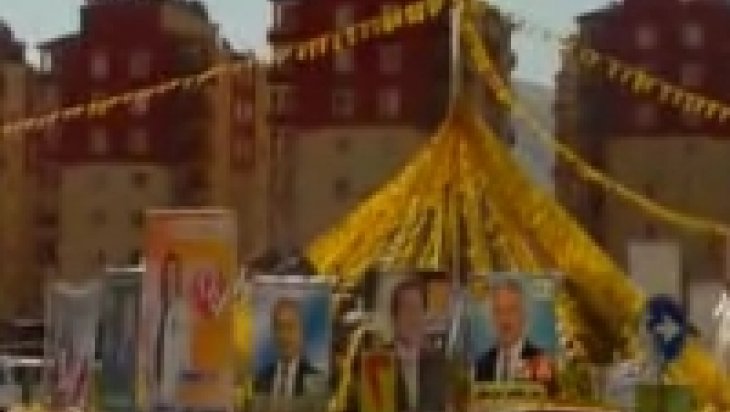Last Observations before the Elections: From Duhok to Erbil

The parliamentary elections, of which results have been expected with great curiosity in Iraq's Kurdistan Regional Government, started with the votes of security forces and officials. Although the election actually takes place on September 21, 2013, this process, during which some 5% of total number of electors vote, is not open to observation. Despite the fact that pre-election restrictions started at midnight on September 18, it was not abided by in the region in general. It is not surprising to come across vehicles with flags of various political parties on in Erbil. It can also be asserted that a pre-election war of colors prevailed in Erbil. Yellow represents KDP, green represents PUK, blue represents Goran and brown represents Kurdistan Islamic Union. Some 30 political parties and lists, other than the aforesaid ones, are not noticed among others. On the other hand, KDP has a clear dominance in Duhok. Even though one rarely comes across the flags of Goran, PUK and Kurdistan Islamic Union; it would not be wrong to assert that Duhok is full of yellow flags all around. It is a known fact that Duhok is traditionally stronghold of KDP. Receiving 65 percent of votes in Duhok in the general elections of 2010, KDP still appears to be the one and only prevailing figure in Duhok. Even though there is no rival to defy KDP's dominance in Duhok, it can be suggested that the second party in the province is Kurdistan Islamic Union. PUK and Goran, on the other hand, do not have much influence in Duhok.
One of the most attention-grabbing elements among these is the position of Kurdistan Democratic Solution Party (KDSP). KDSP, PKK's branch in Iraq, was not allowed to run for the 2009 elections. However, there is a possibility that in this election, KDSP might win some seats in the Regional Parliament, even a little. It is seen that KDSP, which has a partial grassroots support especially in northern Duhok, used harsh words against KDP before the elections. This situation can also be read as extension of the relations tensed between KDP and PKK for a while. On the other hand, Duhok is not the only place where KDSP makes its presence felt. It is known that KDSP is also supported in some 70 villages on the outskirts of Qandil. The fact that KDSP conducts electoral campaigns in those areas disturbs PUK and Goran. Although the voting potential of KDSP is not so strong to disturb the major parties, the expectation that the post-election parliamentary balances will be fragile makes even a single seat very important.
The last point that should not be forgotten regarding the elections is the involvement of Turkmens in the electoral process. It can be suggested that Turkmens are preparing for the elections with a much greater enthusiasm than the former elections. Especially the Iraqi Turkmen Front and Erbil Turkmen List strive hard to receive the votes of Turkmens in North Iraq. Although especially the presence of Iraqi Turkmen Front's candidates in Duhok and Sulaymaniyah is felt quite rarely, the fact that Turkmens are also a part of the elections is obvious all across Erbil. There is a clear disproportion between the Turkmen population in Erbil and the quota reserved for Turkmens in KRG's parliament. On the other hand, considering the sense of isolation felt by Turkmens in Erbil and their tendencies to become integrated in the system, it might be suggested that the five-seat quota is proportional to the Turkmen electors. It is not about the Turkmen population in Kurdistan Regional Government, but the fact that Turkmens rather vote for those who hold administrative power in order to become integrated in the system. On the other hand, it is believed that the exclusion of Turkmens by the government on the basis of national identity prevents the Turkmen people from voting for Turkmen parties. In other words, it can be asserted that Turkmens support the driving force of the system due to the fact that the Turkmen people are convinced that the five-seat quota reserved for Turkmens in the parliament of Iraq's Kurdistan Regional Government is not enough for them to take part in the system. From this point of view, it is highly unlikely that the results of the election to be held on September 21 will reflect the real potential of Turkmen electors and population.










